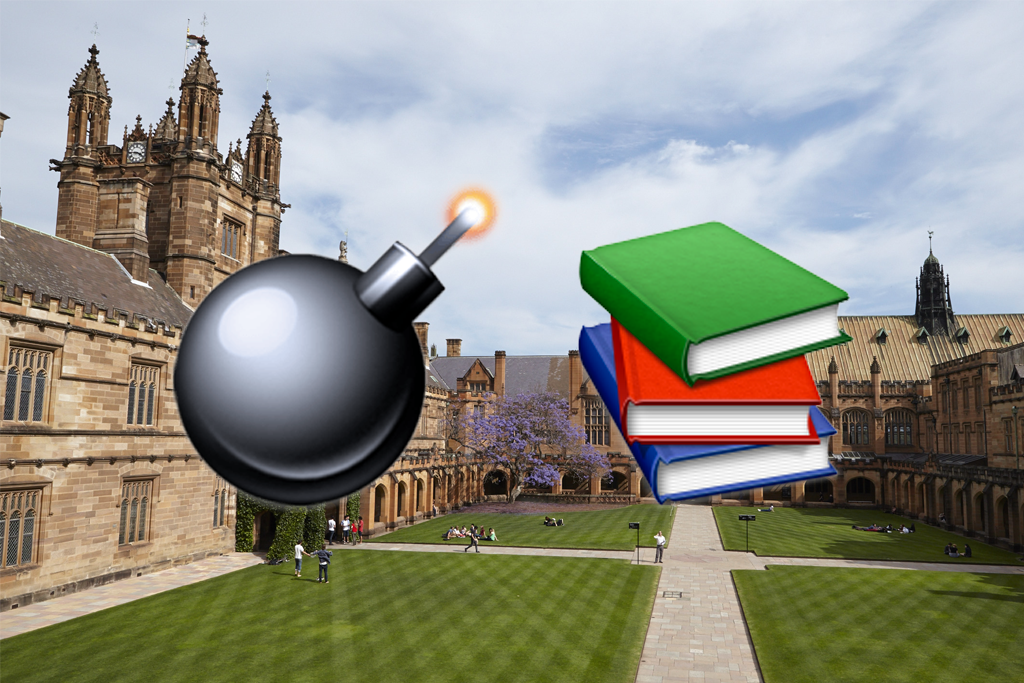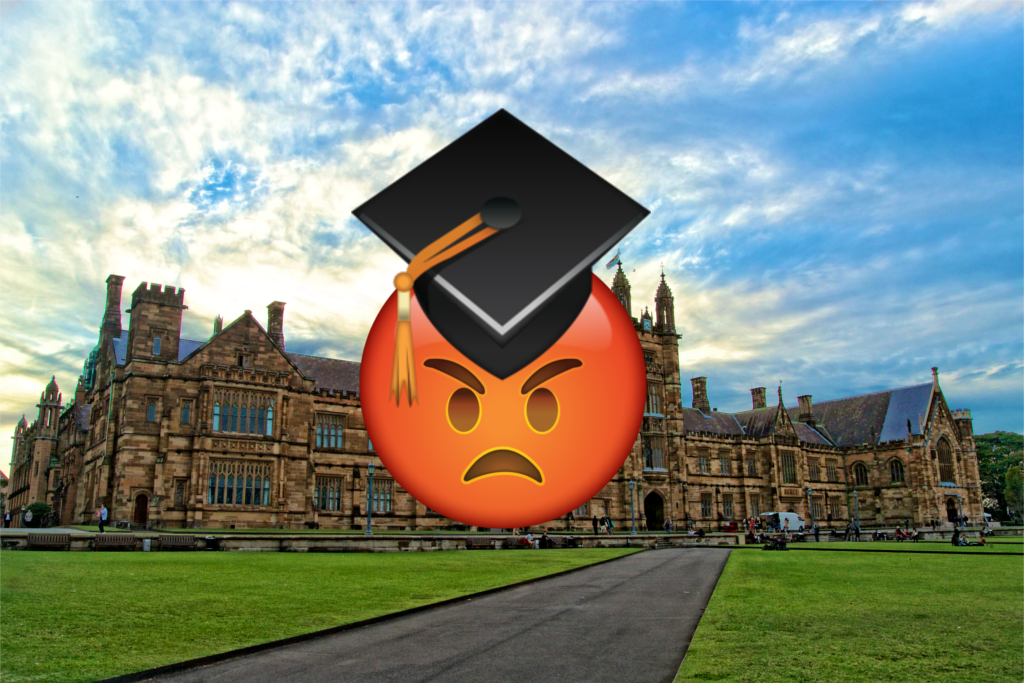Sydney Uni Is Investing In The World’s Biggest Arms Manufacturers And Students Aren’t Happy
Whatever happened to books, not bombs?

One of Australia’s top universities is investing millions of dollars in some of the world’s largest weapons manufacturers, and students aren’t too happy about it.
Documents released under freedom of information laws have revealed the University of Sydney currently invests in 23 companies ranked in the top one hundred arms manufacturers in the world by the Stockholm Institute of Peace Research.
The University’s total investment in arms manufacturers is valued at more than $4 million, of which the lion’s share ($3.35 million) is invested in Honeywell. Honeywell is the company that manufactured deadly cluster bombs during the Vietnam War, which have killed tens of thousands of people since. It has more recently faced criticism for its involvement in the manufacture of nuclear weapons. The Norwegian Oil Fund, one of the largest investors in the world, refuses to invest in Honeywell for this reason.
In addition to the University’s financial support for arms manufacturers, its Chancellor Belinda Hutchinson is the chair of the Australian arm of weapons manufacturer Thales. A memorandum of understanding between the University and Thales was signed last year. It announced a partnership between the Universiyu and the company on certain projects, though the details of these remain vague. The Sydney University told Junkee there was no conflict of interest in this partnership despite Hutchinson’s leadership role in both institutions, saying she was not involved in negotiations.
Students are not particularly happy with Sydney Uni’s closeness with arms manufacturers. Just last week there was a protest on campus calling for the uni to fund “books, not bombs”, and criticising both the University and the federal government for directing resources towards arms manufacturing while making cuts to education. Federal parliament is currently debating whether to lower the HECS repayment threshold, meaning we’d all have to start paying our debt back sooner.
The Sydney Uni SRC’s Education Officer, Lara Sonnenschein, who submitted the freedom of information request that revealed the Uni’s current investments, criticised the government for engaging in “the biggest defence build up since the Second World War”, saying that “the chronic underfunding of the higher education sector has led universities to look to the private sector to make up for the loss in public funding, resulting in fostering research partnerships with various arms companies”.
Sydney Uni defended its investment decisions, pointing out that its investment in arms manufacturers “accounts for a tiny proportion of its investment portfolio: 0.28 percent, that is a little more than a quarter of one percent of its investments”.
“For many of these companies arms manufacturing is only a small part of their business activity,” Sydney Uni told Junkee. “Arms manufacturing accounts for 10 percent of Honeywell’s wide-ranging activities while 45 percent of Honeywell’s revenue comes from climate solutions.”
The University added that its investment decisions are largely made by its fund managers in accordance with the investment policy, and that students are given a say through the single student representative elected to the University Senate, who “is welcome” to attend investment sub-committee meetings.
